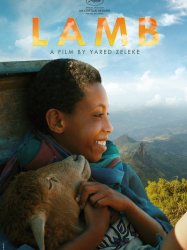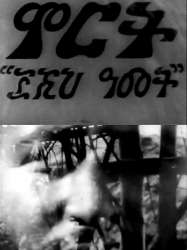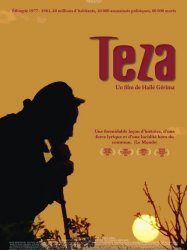Films from the country "éthiopie", sorted by revenue

Difret (2014)
, 1h39Origin éthiopie
Genres Drama, Biography
Themes Feminist films, Politique, Political films
The film chronicles a legal-precedent setting court case that outlawed the kidnapping of child brides in Ethiopia. It tells the story of a 14-year-old girl, Hirut Assefa (based on Aberash Bekele), who is kidnapped on her way home from school and subsequently grabs a rifle and tries to escape, but ends up shooting her would-be husband. In her village, the practice of abduction into marriage is common and one of Ethiopia's oldest traditions. Meaza Ashenafi, the founder of the Ethiopian Women Lawyers Association, arrives from the city to have her team represent Hirut and argue that she acted in self defence.

Lamb (2015)
, 1h34Directed by Yared Zeleke
Origin éthiopie
Genres Drama
Ephraïm est un jeune garçon éthiopien, toujours accompagné de son inséparable brebis. Suite à une famine ayant provoqué le décès de sa mère et poussant son père à aller chercher du travail en ville, il est confié à la garde de son oncle. Mais Ephraïm s'adapte mal à sa nouvelle vie. Un jour son oncle lui annonce qu'il devra sacrifier sa brebis pour le prochain repas de fête. Ephraïm tentera tout pour sauver la vie de sa brebis.

Harvest: 3,000 Years (1975)
, 2h17Directed by Hailé Gerima
Origin éthiopie
Genres Drama
Themes Films about the labor movement
Dans l'Éthiopie contemporaine, un paysan pauvre et sa famille travaillent pour un riche et cynique propriétaire terrien qui les exploite. Un ancien paysan dépossédé de sa terre, devenu le fou du village, les incite à la résistance. Lui seul peut tout dire, protégé par sa déraison. Il finit par tuer le propriétaire, et se suicide pour échapper à la prison.

Teza (2008)
, 2h20Directed by Hailé Gerima
Origin éthiopie
Genres Drama, Thriller
Themes Films set in Africa
Set in 1970s Ethiopia, Teza (Morning Dew) tells the story of a young Ethiopian as he returns from West Germany a postgraduate. Anberber comes back to a country at the height of the Cold War and under the Marxist regime of Mengistu Haile Mariam. Working in a health institution he witnesses a brutal murder and finds himself at odds with the revolutionary gangsters running the country. He is ordered by the regime to take up a post in East Germany and uses this opportunity to escape to the West until the Berlin Wall falls and Ethiopia's military regime is overthrown.

Just for One Day (2008)
, 10minutesOrigin éthiopie
Genres Documentary
Themes Films set in Africa
The portrait of a single mother as she tries to make a living for her daughter and herself on the outskirts of Addis Abeba, Ethiopia.

The Athlete (2009)
, 1h33Origin éthiopie
Genres Drama, Historical
Themes Films set in Africa, Sports films, Athletics films
Actors Dag Malmberg, Ruta Gedmintas
Atletu est le portrait, mêlant fiction et images d’archives, d’une légende du marathon : l’Éthiopien Abebe Bikila. En 1960, lorsqu’il arrive aux Jeux olympiques de Rome, il est parfaitement inconnu. Pourtant, ce fils de berger, pieds nus, remporte la médaille d’or au marathon. Quatre ans plus tard, il réitère son exploit aux Jeux de Tokyo, devenant ainsi le premier champion olympique à être deux fois vainqueur du marathon. Mais quelques années plus tard, victime d’un accident de voiture, il perd l’usage de ses jambes. Il meurt quatre ans après.
 Connection
Connection